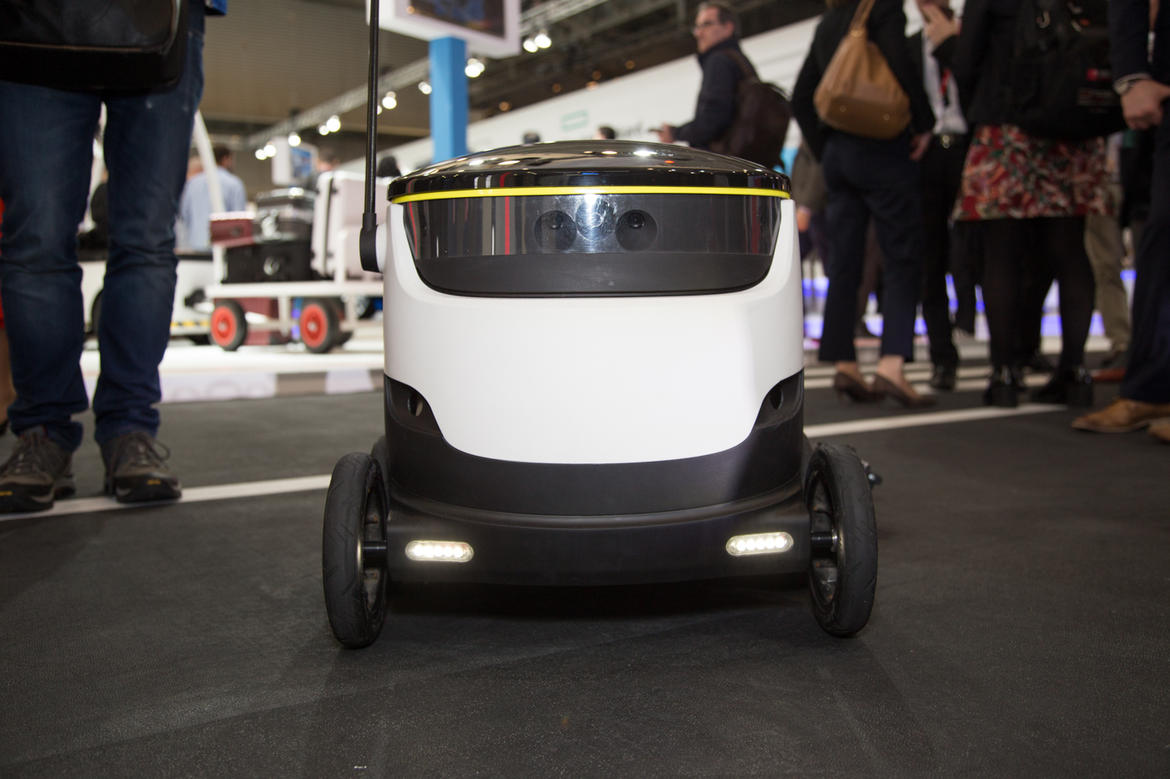Perhaps the future will come screaming across the sky, or maybe it will just putter along.
Nevada just became the first state to experience an FAA-approved drone delivery, which may be a harbinger of a different near-term future the way the first online purchase (a copy of the Sting CD Ten Summoner’s Tales) was in 1994. But ground-bound delivery robots on wheels, the tortoise in the race, can also cheaply get groceries and goods to consumers and could be formidable competition. Probably there’s room for both.
From Michael Laris’ Washington Post piece about Starship Technologies‘ autonomous “rolling suitcases” perhaps coming to our nation’s capital soon:
There were no chirpy little R2-D2 sounds, just the quiet churn of bureaucracy starting to roll as [Council Secretary Nyasha] Smith stamped in the legislation. “I want it to speak with me. I want it to have a relationship with me!” [Councilwoman Mary] Cheh said.
As does Allan Martinson, Starship’s chief operating officer, who saw some 6,000 firms as a venture capitalist before deciding to join the robotic delivery startup. This is no phantom product that will have fizzled in a year, he said.
“It’s a real, tangible, solid thing,” Martinson said. “You can engineer yourself out of any situation. That’s the philosophy of this company.”
Martinson said the robots began rolling autonomously last month through parts of London and Tallinn, Estonia’s capital, using proprietary digital maps and sophisticated software. They can also be guided over the web by an operator if they get stumped on their way. To make delivery cheap — from $1 to $3 dollars a trip, hopefully dropping to under $1, company executives said — engineers are trying to keep the hardware basic. That means no laser-pulsing LIDAR, an expensive surveying technology used in many driverless car prototypes.
“It’s basically a mobile phone on wheels,” Martinson said. Its low speed and weight — 4 miles per hour and 40-pounds max — also short-circuit safety concerns, he added. “It’s basically a rolling suitcase. If you go home and try to kill yourself with a suitcase, you’d have to be very inventive.”•

